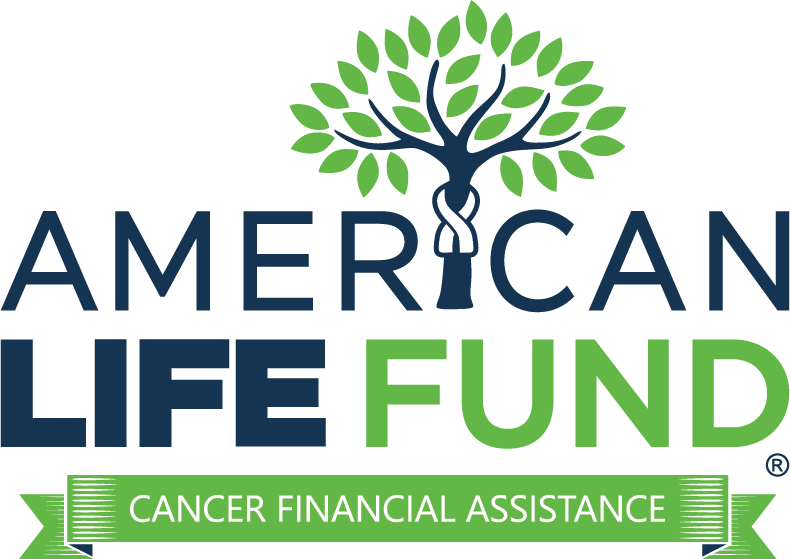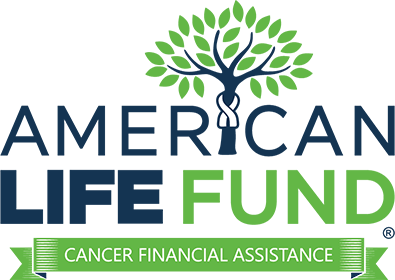When it comes to life insurance, the goal is often to provide financial security for your loved ones. However, as circumstances change, you may find that exploring life insurance settlement options can offer immediate financial relief. A life settlement allows you to sell your life insurance policy for a lump sum payment, offering you the flexibility to access the value of your policy while you’re still alive. Among the various options available, a viatical settlement stands out as the best choice for individuals facing a serious illness, providing an immediate payout that can be used to cover costs like medical bills or daily living expenses.
Here we will review the different life insurance settlement options, comparing them and showing why a viatical settlement may offer the greatest benefit when you’re looking for financial freedom. Whether you’re unsure about the process or just beginning to consider your options, we’ll help you make an informed decision that suits your needs.
What Are My Life Settlement Insurance Options?
When it comes to life insurance settlements, there are several options available that allow you to access the value of your life insurance policy before the death benefit is paid out. Each option offers different benefits based on your financial goals and needs.
1. Lump Sum Payment
This is the most straightforward option. You sell your life insurance policy for a lump sum payment, receiving immediate cash. The amount is typically more than the cash surrender value but less than the entire policy payout. This option is ideal for individuals seeking flexibility with how they use the money.
2. Interest Accumulation
With this option, the insurance company holds the death benefit and allows it to grow over time. The beneficiary may access the interest accumulation but not the policy’s death benefit itself. This option is generally used by those who don’t need immediate funds but want the money to grow.
3. Fixed Period and Fixed Amount Payouts
These options involve receiving the death benefit in smaller, regular payments rather than a single lump sum. A fixed period payout distributes payments over a set number of years, while a fixed amount payout provides regular payments until the funds are depleted.
4. Viatical Settlement
A viatical settlement is an option for individuals facing a life threatening illness. This type of settlement provides a large, immediate lump-sum cash payment in exchange for the sale of the policy, which can be used to cover medical expenses, daily living costs, or any other financial need. Viatical settlements are often tax-free, providing further financial relief.
Why Is a Viatical Settlement a Better Choice?
While there are multiple life settlement options, a viatical settlement often proves to be the best choice for individuals facing a serious illness. Here’s why:
- Immediate Access to Cash: Unlike other settlement options that may offer payments over time, a viatical settlement provides a significant lump sum payment that can be used immediately. This can help you cover urgent costs such as medical bills, daily living expenses, or other financial obligations without delay.
- No Restrictions on How You Use the Funds: The proceeds from a viatical settlement are yours to use however you see fit. Whether you need to cover healthcare expenses or want to invest in your personal finance goals, you have full control over how to spend the money.
- Potentially Tax-Free: In many cases, viatical settlements are tax-free, providing even greater financial benefit. This is a huge advantage compared to some other life insurance settlement options, where taxes can reduce the amount of money you ultimately receive.
- Higher Payouts for Those in Need: The payout for a viatical settlement is often based on your life expectancy and health status. For those facing a life threatening illness, the payout is generally higher, offering more money to cover immediate financial needs compared to other life settlement options.
- Relieve Financial Stress: By selling your policy through a viatical settlement, you can eliminate the burden of paying future premiums while also gaining peace of mind knowing that you have the financial resources to handle whatever comes your way.
Choosing a viatical settlement can make a significant difference in managing financial stress, especially when dealing with serious health challenges. For individuals in these situations, it stands out as the most beneficial option among all life settlements.
How Much Can I Get From a Viatical Settlement?
The amount you can receive from a viatical settlement depends on several key factors, including your life expectancy, the type of life insurance policy you have, and the current cash surrender value of your policy. Typically, the shorter your life expectancy, the higher the payout will be, as the life settlement provider takes on less risk when purchasing the policy.
Here’s how the payout is generally calculated:
- Policy’s Death Benefit : The size of your death benefit is a major factor. Policies with larger death benefits tend to receive higher offers in a viatical settlement.
- Health Status: A life threatening illness significantly impacts the settlement amount, as a shorter life expectancy leads to a higher payout. The life settlement industry uses health assessments to determine the value of your policy.
- Premium Payments: The cost of future premium payments that the buyer will take on also affects the offer. If the life insurance policy has low premiums, the settlement amount may be higher.
For example, a life insurance policy with a policy’s death benefit of $500,000 may yield between 30% and 70% of that amount in a viatical settlement, depending on your health and the policy’s details. This means you could receive a cash payout ranging from $150,000 to $350,000, giving you the flexibility to cover costs like medical bills, living expenses, or any other financial needs.
If you’re curious about how much your policy might be worth, you can use our Viatical Settlement Calculator for a quick, no-obligation estimate.
What Are the Tax Implications of a Viatical Settlement?
One of the significant advantages of a viatical settlement is that, in many cases, the proceeds are tax-free. For individuals facing a serious illness, the IRS typically exempts viatical settlement proceeds from taxation, making this option even more beneficial. However, it’s important to understand how taxes might apply in specific situations and for other types of life settlements.
Here’s what you need to know:
- Tax-Free for Individuals with a Life Threatening Illness: If you’re considered to have a life threatening illness, the IRS generally considers the proceeds from a viatical settlement as an accelerated death benefit, which is not subject to federal income tax.
- Other Life Settlements May Be Taxable: In contrast, the proceeds from other life insurance settlement options, such as traditional life settlements, may be subject to capital gains tax. The amount you receive that exceeds the total premium payments you’ve made could be taxed as ordinary income or capital gains, depending on the specifics of the policy.
- Consult a Tax Professional: It’s always a good idea to consult a tax professional before proceeding with a viatical settlement or any other life settlement. They can help make sure that you are making an informed decision and guide you through any potential tax consequences based on your specific circumstances.
How Do I Qualify for a Viatical Settlement?
Qualifying for a viatical settlement is generally based on specific criteria, including your health status and the details of your life insurance policy. Here’s what you need to know to determine if you’re eligible:
Health Status:
A viatical settlement is designed for individuals diagnosed with a serious illness including conditions like advanced cancer, ALS, or other critical illnesses.
Life Insurance Policy Type:
Most types of life insurance policies qualify for a viatical settlement, including term policies, whole life, universal life, and permanent life insurance policies.
Policy Size and Premiums:
Generally, policies with larger death benefits result in higher payouts, viatical settlements are available for policies of various sizes.However, a policy must be $150,000 or more in order to sell it. Each situation is unique, and the value of your life insurance policy depends on several factors, not just the size of the policy.
Age:
The key factor in qualifying for a viatical settlement is your health status, not necessarily your age. The severity of your health condition and your life expectancy are the primary factors that determine your eligibility and the potential payout.
If you meet these criteria, a viatical settlement can provide a lifeline of immediate cash when you need it most. To learn more about eligibility, you can visit our Viatical Settlement Eligibility page or contact American Life Fund for a free evaluation of your policy.
What Are the Risks of Other Life Settlement Options?
While there are several life settlement options available, it’s important to consider the potential risks associated with each. Some alternatives to viatical settlements may not offer the same level of financial flexibility or security. Here are a few risks to be aware of when considering other options:
- Lump Sum Payment Risks: Receiving a lump sum payment may seem appealing, but it comes with the risk of quickly depleting the funds if they are not managed carefully. Beneficiaries who are not financially experienced may struggle to stretch the money over the long term, leading to potential financial strain later.
- Fixed Period or Fixed Amount Payments: While these options offer regular payments over a specified time, there’s a risk that the payments might not last as long as needed. If the funds run out before the beneficiary’s financial needs are fully covered, this could result in a gap in support.
- Interest-Only or Interest Accumulation: With these options, the insurance company holds the policy’s death benefit, paying out only the interest earned. While this allows the principal to grow, there’s a risk that the interest payments may not be enough to cover the beneficiary’s expenses, especially if the life insurance company doesn’t offer competitive growth rates.
Conclusion: Why American Life Fund Is the Best Choice
When it comes to life settlement insurance options, a viatical settlement stands out as the best choice for individuals facing significant health challenges. It provides immediate access to cash, offers flexibility without restrictions, and can often be tax-free, providing much-needed financial relief during difficult times.
At American Life Fund, we specialize in viatical settlements, helping individuals turn their life insurance policies into valuable financial support. Our team understands the special needs of those facing a life threatening illness and works with compassion and professionalism to make sure you get the most out of your policy. Whether you’re covering medical bills, daily living expenses, or just seeking peace of mind, we’re here to help.
Take Control of Your Financial Future Today
If you’re considering a viatical settlement, don’t hesitate to reach out to American Life Fund for a no-obligation consultation. Contact us at 877-261-0632 to learn more about how we can assist you. Let us help you make an informed decision and get the financial relief you deserve.
FAQ: Understanding Life Settlements
What is a traditional life settlement?
A traditional life settlement is the sale of a permanent life insurance policy to a third party in exchange for a lump sum of cash. The amount received, known as the life settlement proceeds, is typically more than the policy’s cash surrender value but less than the death benefit. This option provides policyholders with immediate access to the policy’s value.
Who are life settlement providers?
Life settlement providers are companies or financial institutions that purchase life insurance policies from individuals. These providers take over the responsibility of paying future premiums and receive the policy’s retained death benefit when the insured person passes away.





